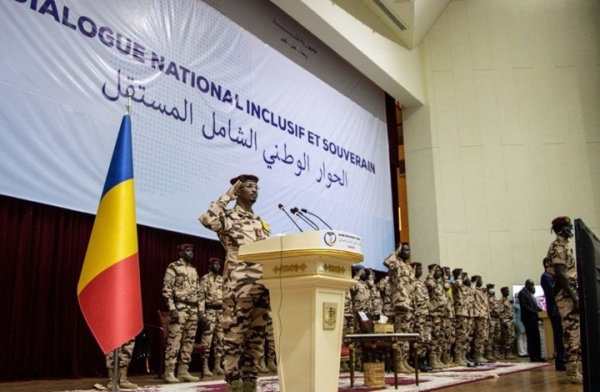The Gulf state has long mediated between conflicting parties in different parts of the world.
Qatar’s National Security Adviser Mohammed bin Ahmed Al-Misnad met with the Chadian opposition Transformers party leader Succes Masra, Al Jazeera reported on Monday.
The meeting took place following the launch of the Chadian national dialogue, which came weeks after the signing of the Doha Peace Agreement on 8 August.
The accord was a result of five months of talks in Doha and led to a crucial ceasefire between warring factions.
The Transformers party is among several other groups that has stood against the newly-launched national dialogue in N’Djamena. The talks kicked off on Saturday with calls for civil resistance.
Al-Misnad attended the meeting in Chad and reiterated “Qatar’s support for the inclusive national reconciliation in Chad in order for the Chadian people to enjoy security and stability.”
Masra told Al Jazeera that he explained to the Qatari envoy the reasoning behind his party’s refusal to partake in the latest talks while expressing his openness for Qatari mediation.
The opposition official also said he is waiting for the results of the Chadian reconciliation as it would be a key indicator of the inclusivity of the negotiations.
Peace-building talks in Qatar gathered more than 50 movements in an effort to pave the way for long-promised elections ahead of the deadline set for the junta’s 18-month rule.
The talks in the Chadian capital are attended by more than 1,400 delegates from different parties and movements.
President of Chad’s Transitional Military Council (TMC) Mahamat Idriss Deby Itno has held the reigns since the death of his father last year.
The late leader, who ruled for some 30 years, died in April last year during a military offensive led by rebel group Front for Change and Concord in Chad (FACT).
The current 38-year-old leader dissolved the parliament after coming into office, though he has promised elections by the end of the transitional period in October.
FACT, a key rebel group, refused to sign the accord in Doha and has also rejected talks in the Chadian capital.
The Transformers group has pointed to the ruling military’s human rights violations and concerns over Deby running for elections. The group has long demanded guarantees by the TMC to not run in the elections.
In April, Human Rights Watch (HRW) expressed concern over a worsening human rights situation in the country, accusing Deby of “carrying out arrests of dissidents and threatening critics across the country”.
Those claims have been denied by Deby’s ministers.
Qatar has long mediated between conflicting parties in different parts of the world.
In 2009, Qatar sponsored the signing of the “Doha Accord”, also known as the “Darfur agreement”, between Khartoum and N’Djamena.
The agreement, co-sponsored with Libya, was signed amid tensions between Sudan and Chad in 2008, with both countries accusing each other of supporting insurgent groups and rebel attacks inside their territories.
Chad accused Sudan of supporting rebels who sought to oust late president Deby, whereas Sudan accused Chad of supporting rebels in the western province of Darfur.







